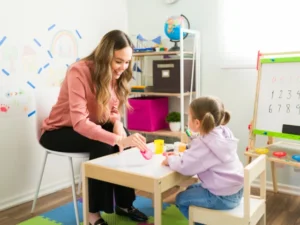 Can a couple recover from an affair?
Can a couple recover from an affair?
At My Therapy ConnectionTM, it’s a question we’re asked all the time. Truth is, infidelity can be one of the most devastating experiences a couple might ever face in their relationship.
The emotional impact of an affair within a relationship is understandably enormous. But there’s some good news: with commitment, openness, and the right therapeutic support, it is absolutely possible to recover from an affair, to rebuild trust, and to heal and restore a relationship.
The Complexities of an Affair
Infidelity can be defined in a number of different ways:
- Romantic Attachment: A so-called “Limerence” affair can often be prompted by low self-esteem, where someone responds to romantic attention or flattery by someone outside of their relationship. This goes beyond just physical attraction and can become obsessive, leading to destructive outcomes.
- Emotional Affairs: These are most often affairs characterized by being non-physical, but are just as devastating in their impact. Online affairs or office romances are typical examples of emotional infidelity.
- One Night Stand: This kind of infidelity is often dismissed as something that is brief, superficial, and meaningless, but the truth is that it isn’t. The pain and sense of betrayal it produces in a partner – and the damage to the relationship itself – is all too real.
There are many other examples – and the circumstances that can trigger infidelity are just as broad. Sometimes, an individual may embark on a “revenge affair” in retaliation for a partner’s infidelity, or as a way to “get even” for hurt or dissatisfaction they are experiencing within their relationship. It’s also not uncommon for someone to commit infidelity as a way of emotionally withdrawing from an unfulfilling relationship.
The Impact of Infidelity
Infidelity understandably shakes the very foundation of a relationship. The betrayed partner most often experiences a range of emotions that include shock, anger, grief, and debilitating self-doubt. Trust is broken, and the future of the relationship may seem uncertain – if not irreparable.
For many people, infidelity is the ultimate dealbreaker, and can result in a wronged partner feeling the need to retaliate:
- The wronged partner may immediately cut off all attempts at communication or reconciliation, and simply walk out for good.
- A cycle of retaliation can ensue, which might also include the wronged partner seeking out an affair of their own. (Predictably, will not help heal the underlying relationship issues.)
- Sometimes, a couple will stay together out of necessity, but embark on a relationship “cold war” where hostility, mistrust, sabotage, and emotional distancing becomes the new status quo.
Not every single situation is salvageable – but a great many are, and with time, effort, and skilled professional guidance, recovery is absolutely possible. In fact, in many cases, a relationship can actually become stronger, more loving, and more trust-filled than it was before the infidelity took place.
My Therapy ConnectionTM offers several specialized therapy modalities that have proven to be incredibly effective at restoring fractured relationships in the wake of infidelity. We make use of key therapy approaches that include Emotionally Focused Couples Therapy, and the Gottman Method pioneered by Drs John and Julie Gottman.
What is Emotionally Focused Couples Therapy (EFT)?
Emtionally Focused Couples Therapy (EFT), developed by Dr Sue Johnson, is a highly effective approach for couples seeking help in dealing with the aftermath of an affair. Here are some important ways in which EFT can help:
- Underlying patterns: EFT can help couples how to recognize the deeper emotional dynamics that are happening within their relationship. Most often, these patterns are hidden from view but can have an enormous impact on a relationship.
- Establishing Safe Connections: EFT enables couples to explore ways of reaching for one another that create safety, connection, and even new-found joy. This establishes a platform upon which to begin carefully rebuilding and reframing a relationship.
- Communication Skills: EFT enhances communication skills, enabling partners to express their feelings and needs more openly. To be effective, sincere communication requires honesty and vulnerability, and this goes a long way toward rekindling understanding and even affection.
- Emotional Regulation: Participants learn techniques that help manage intense emotions and gain truly effective tools to reduce conflict.
The Gottman Method
The Gottman Method has its foundation in decades of research into what makes relationships not only succeed, but thrive and become remarkably resilient. This well-established, time-proven approach is designed to help couples through difficulty at any and every stage of their relationship. The wonderful thing about the Gottman Method is that it’s practical and highly specific, and when combined with the deeper emotional work embodied in Emotionally Focused Couples Therapy, provides couples with a proven, step-by-step approach to rebuilding a fractured relationship.
- Researched and Proven: The Gottman Method is backed by rigorous research spanning almost 50 years, and offers lifelong tools for relationship-building, relationship recovery, and long-term success.
- Conflict Management: The Gottman Method specializes in resolving conflict – and this is one of the very first and most important steps in terms of recovering from infidelity. But this is just one aspect of rebuilding a relationship and establishing trust, and the Gottman Method also focuses on key elements like rekindling friendship and creating shared goals.
- Intimacy and Connection: Partners are shown how to rekindle intimacy and how to create new, positive experiences together. Think of this as starting over, but with the benefit of hindsight and a newer, stronger relationship framework to help things along.
- Future Planning: Here, the focus shifts to discussing future goals and aspirations as a couple. This really helps create a shared vision, a renewed sense of purpose, and to establish a positive direction within the relationship.
- Continued Growth: For long-term success, a mutual commitment to ongoing personal and relational growth is really important. And, with the help of a therapist, hurt can give way to healing, trauma to trust, and helplessness to deep happiness.
Remember, this is just a broad overview – the actual therapy process is far deeper. It requires professional mediation and guidance from a therapist and is expertly adapted to serve your specific circumstances and needs.
Additional Strategies for Recovery
In addition to vitally important therapy, there are several other ways in which couples can help facilitate ongoing recovery from an affair:
- Establish clear agreed-upon boundaries – social and behavioral – that engender trust and stability within the relationship. The importance of firm boundaries cannot be overstated, because trust must be regained and earned through consistency and willingness to stay within those boundaries.
- Prioritize self-care for both partners. This is important because it helps reduce stress, eases potential conflict, and promotes greater emotional well-being.
- Practice forgiveness. This process requires time and work, and is sometimes far easier said than done, but forgiveness is truly powerful – it sets couples free and is one of the cornerstones of genuine love.
- Establish a support network of family, friends, and groups that provide encouragement, emotional support, and – sometimes – even inspiration along the journey of recovery.
Most importantly, remember that rebuilding trust takes time.
There are no shortcuts!
Why You Should Seek Professional Help
In theory, you could read about the recovery process and simply do it all yourself. Right?
Except that you can’t.
Within a relationship fractured by infidelity, it’s very difficult to see the forest for the trees. Couples are most always dealing with enormous burdens: shame, guilt, resentment, fierce anger, depression, automatic responses, emotional tunnel vision, and extremely poor or non-existent communication. An empathetic therapist serves to provide reassurance, emotional support, direction, and a safe place where stability can be regained.
Think about it. If you (heaven forbid) had to suffer a catastrophic physical injury, would you be able to perform surgery on yourself? Pretty obviously, the answer is no. And the same applies to the emotional, psychological, and spiritual injury that infidelity can inflict on individuals and couples.
Contact us today, and let us help you.
We Want the Best For You – and Your Relationship
At My Therapy ConnectionTM, we want only the best for our clients and their families.
We love to see relationships restored, love and trust rekindled, and the power of restoration working in the lives of people who deserve only the best for themselves and for each other.
If that’s you, please don’t hesitate to reach out – and remember, we’re just a call away.




